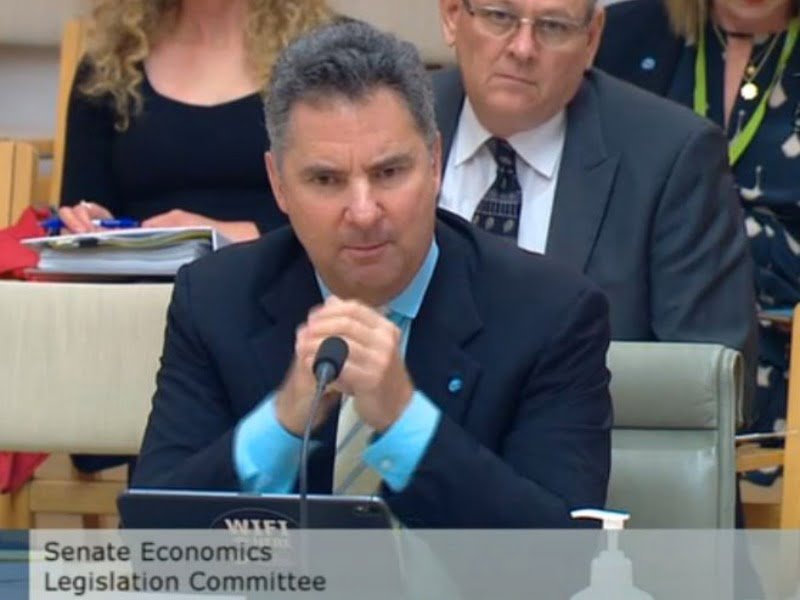The national science agency has had to defend itself against accusations from government senators of an “anti-animal” influence on its research and investments, following a campaign by farming groups against the promotion of plant-based proteins.
During Senate Estimates last week, Coalition senators questioned CSIRO’s work in the area and requested information on the agency’s investments in plant-based protein companies and related research funding.
CSIRO agreed to provide the information on notice and look into any relationship it might have with an alternative protein thinktank.

The science agency has been involved in several plant-based protein spin out companies and conducts research into the products, at times in partnership with the companies.
CSIRO has identified plant-based protein products as a potential export market for Australia which could generate an additional $10 billion and help feed the world’s growing population in a more sustainable way.
It invests only a small fraction of its agriculture research budget in alternative proteins but came under fire from government senators on Thursday for its support of alternative proteins.
Queensland Liberal senator James McGrath questioned one study by CSIRO into the “feeling of fullness” or satiating effect of plant-based proteins in comparison to traditional meat, suggesting it had been prompted by vegan groups.
“This focus, to me, appears to be anti-animal-products…was this study recommended or proposed by any private vegan alternative meat companies or vegan lobby groups?” Senator McGrath asked CSIRO chief executive Dr Larry Marshall.
Dr Marshall explained the science agency’s independence and funding – roughly half its budget comes from external revenue – and the two main reasons CSIRO is working on plant-based protein.
“One is that we know there’s a very direct correlation between what people eat and their physical health. CSIRO has been a leader in this area for probably 30 or 40 years. Finding ways to give better diet recommendations to give us a healthier public is a good thing: it’s good for the economy, because people are healthy; there’s less burden on the medical system; and it’s good for people’s wellbeing,” Dr Marhsall said.
“The other reason is that there’s a growing global market, particularly to the north of us, for alternative proteins—either vegetarian or vegan.”
Dr Marshall also agreed to look into any relationship CSIRO might have with an alternative proteins think Food Frontier, which Senator McGrath labelled as an “anti-meat activist group”.
The science agency was pressed further on the issue by Nationals senator Susan McDonald, who has launched a Senate inquiry into “definitions of meat and other animal products”, which will report early next year.
The inquiry is looking at the potential “impairment of Australian meat” by the “appropriation” of meat product labelling by plant-based alternatives and their promotion as a more sustainable alternative, attracting more than 200 submissions.
At the Estimates hearing, Senator McDonald questioned the greater sustainability of alternative protein products and asked CSIRO to justify the “considerable amounts of money” it puts towards the area.
Dr Marshall said his agency invests more than $200 million a year in traditional agriculture and food, but less than 4 per cent of that goes to these alternative proteins.
“So, it’s like the tail wagging the dog here,” he said.
“The reason we do it is because of the growing market opportunity to the north of us for vegans and vegetarians…I look at these markets as complementary and not competitive. We know that vegans and vegetarians don’t eat meat, so how do we get to that market? We create new products that attract that market and which should be additive to our exports, not competitive.”
CSIRO also sees potential in plant-based protein as a way of decarbonising agriculture, where methane is a huge source of emissions. But the agency has also developed FutureFeed, a seaweed-based feed ingredient for livestock that can reduce their methane emissions almost entirely.
“[FutureFeed] was very much targeted at helping the cattle industry in Australia be more sustainable,” Dr Marshall said.
“Globally, this is a big problem.”
This week the Australian government refused to sign a pledge with more than 100 other countries including the US and UK to cut methane emissions by 30 per cent by 2030.
Australia joined Russia China and India in refusing to join the push to cut emissions of methane – the second-biggest contributor to global warming behind only carbon dioxide.
Do you know more? Contact James Riley via Email.

